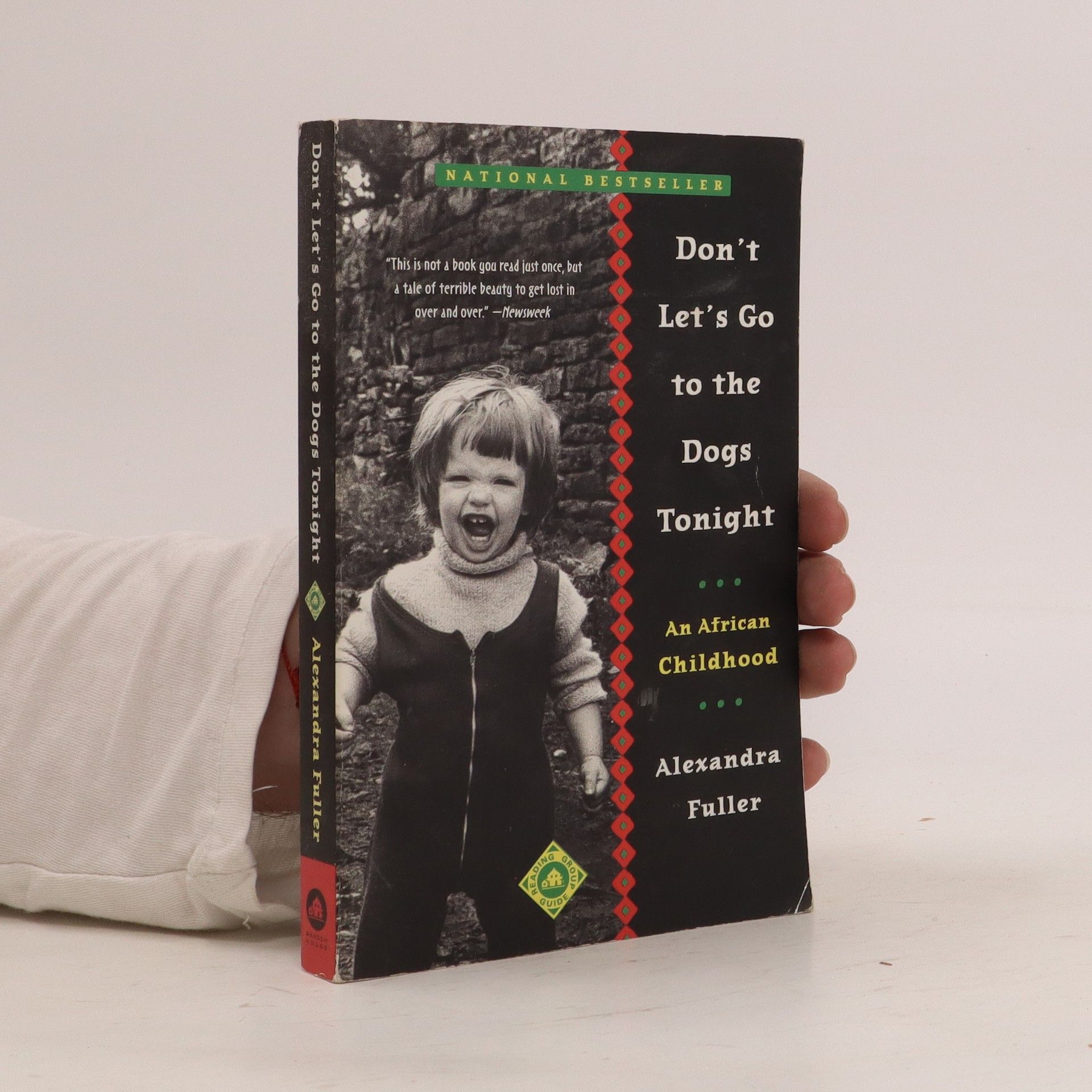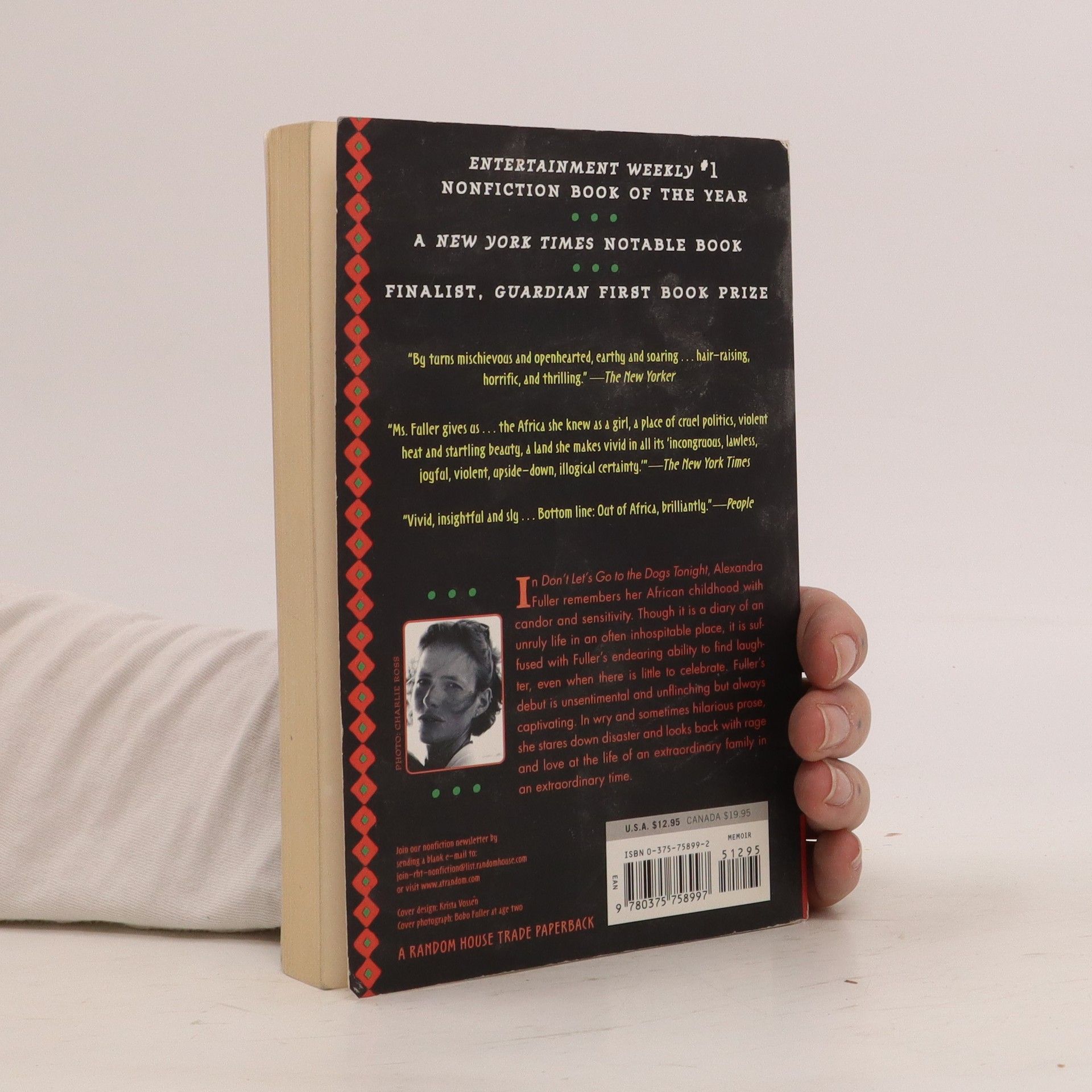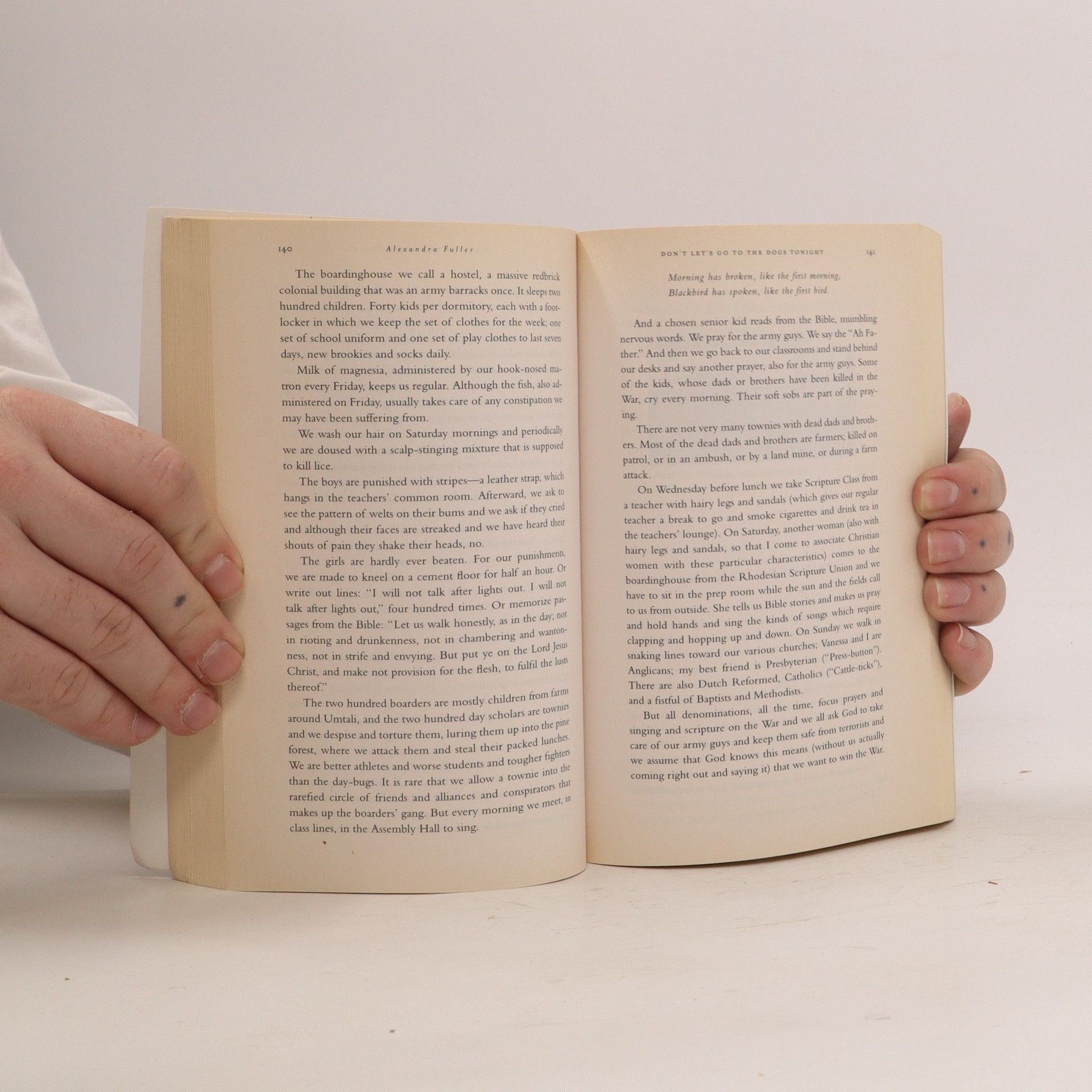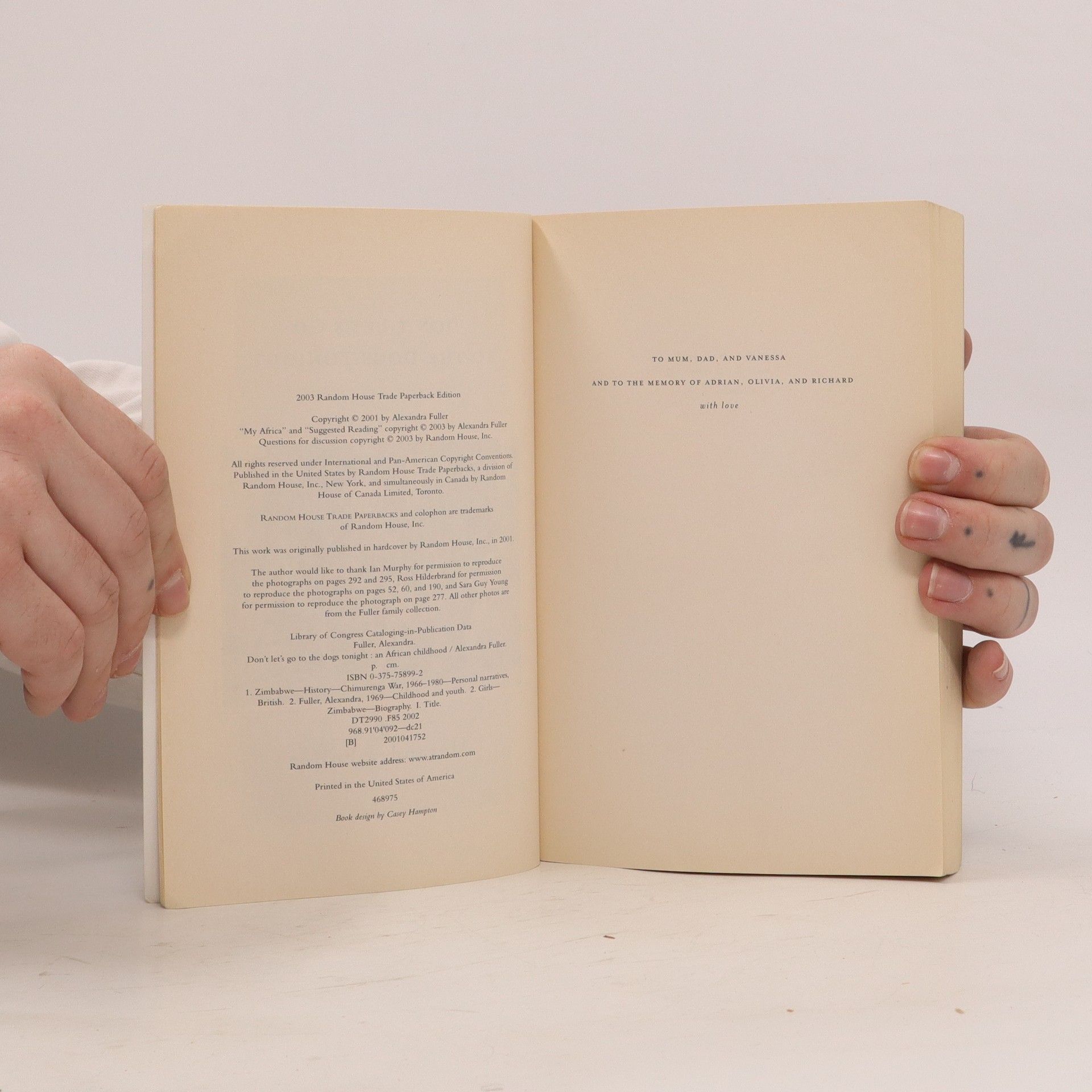More about the book
NEW YORK TIMES BESTSELLER • Alexandra Fuller shares visceral memories of her childhood in Africa, focusing on her headstrong mother. This is a tale of terrible beauty that invites readers to get lost in its pages repeatedly. Full of mischief and heart, the narrative is hair-raising and thrilling. Though it chronicles an unruly life in a harsh environment, Fuller’s writing is infused with humor, even in the face of adversity. Her debut is captivating, unsentimental, and unflinching. In wry prose, she confronts disaster while reflecting on her extraordinary family during extraordinary times. From 1972 to 1990, Fuller—known as Bobo—grew up on various farms in southern and central Africa. Her father fought for the white government in the Rhodesian civil war, often away from home, while her mother embraced their rugged life with passion and energy. Though loving, she had little patience for neediness, teaching her daughters resilience, self-sufficiency, and the importance of strong opinions. Bobo developed a love for reading and storytelling, which became her salvation. Fuller poignantly depicts her journey from girlhood to womanhood and writer against a backdrop of unrest, creating a deeply felt portrait of her bond with the continent and its people.
Book purchase
Don't Let's Go to the Dogs Tonight, Alexandra Fuller
- Language
- Released
- 2003
- product-detail.submit-box.info.binding
- (Paperback)
Payment methods
We’re missing your review here.







